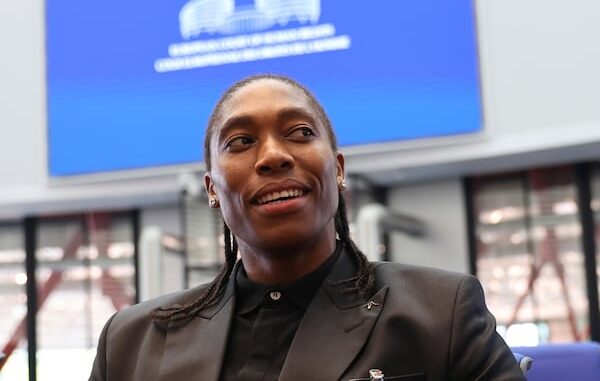
Olympic Champion Caster Semenya Denied Fair Hearing in Sex Eligibility Case, Human Rights Court Rules…
The European Court of Human Rights (ECHR) has ruled that Olympic gold medallist Caster Semenya was denied a fair hearing by Swiss courts in her long-running battle against sex eligibility regulations imposed by World Athletics. The judgment, delivered on Wednesday, represents a major legal victory for the South African athlete and highlights broader concerns over human rights protections in international sport.
Semenya, a two-time Olympic champion in the 800 meters, has challenged the regulations that require athletes with differences in sex development (DSD) to reduce their natural testosterone levels to compete in women’s middle-distance events. She has consistently refused to undergo medical interventions to comply with the rules, which she argues are discriminatory, invasive, and harmful to her health and dignity.
In 2019, the Court of Arbitration for Sport (CAS) upheld the World Athletics policy, ruling that it was necessary to ensure fairness in women’s sports. Semenya appealed the decision to the Swiss Federal Supreme Court, which also sided with the athletics governing body. She then brought her case to the ECHR, claiming her rights to privacy, non-discrimination, and a fair trial had been violated.
The Grand Chamber of the ECHR, its highest body, ruled by 15 votes to 2 that Switzerland had failed to provide Semenya with an effective remedy and adequate judicial review in her case. The court found that the Swiss courts did not give sufficient consideration to the serious human rights implications of the regulations, particularly their impact on Semenya’s bodily autonomy and right to a fair hearing.
“The Court concludes that the applicant did not have sufficient institutional and procedural safeguards available to her in Switzerland to allow the complaints she raised… to be effectively examined,” the ruling stated.
Although the ECHR did not overturn the DSD regulations themselves or directly rule on whether they were discriminatory, the decision marks a significant step in Semenya’s fight for justice. The ruling obliges the Swiss government to pay Semenya €80,000 in legal costs and may pave the way for further legal challenges to World Athletics’ policies.
Reacting to the decision, Semenya said it was a victory not only for her but for all athletes subjected to similar rules. “Justice has spoken. I am grateful to the court for acknowledging the injustice I have faced over the years. This is a moment for all women in sport who have been told they are not enough,” she said in a statement.
Human rights organizations and legal experts welcomed the decision, calling it a critical precedent that reinforces the need for accountability and transparency in global sports governance.
Despite this legal success, Semenya remains barred from competing in her preferred events unless she agrees to lower her testosterone levels—something she has repeatedly refused to do. Her legal team has indicated that they will pursue further action to restore her eligibility and challenge the regulations directly.
As the ruling reverberates through the sporting world, it raises pressing questions about how to balance fairness in competition with the fundamental rights of athletes.



Be the first to comment